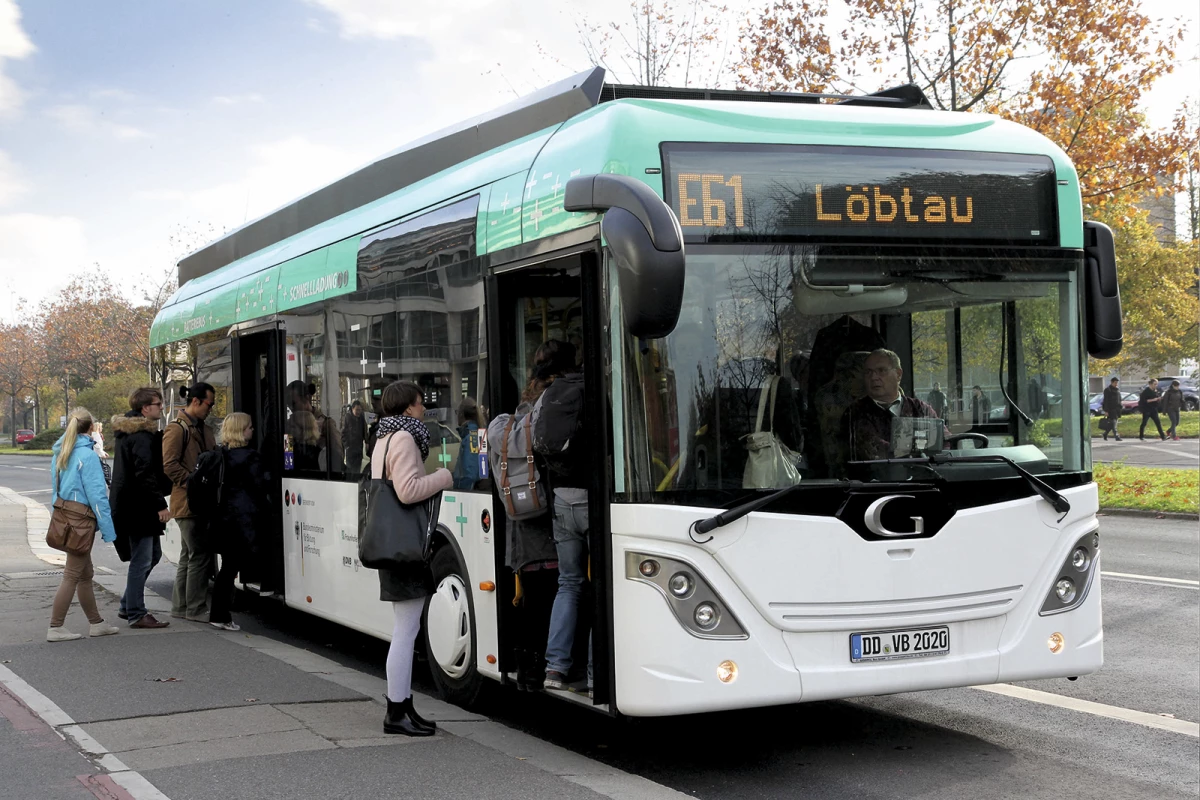If electric buses are ever going to become a common sight in cities around the world, then they'll need to be able to operate like their traditional counterparts. This means no taking long breaks to recharge, or sacrificing seating space for the storage of huge batteries. While allowing them to draw power from the road is one alternative, the European EDDA Bus consortium is working on another – electric buses that can grab a quick charge at bus stops in just a few minutes.
Drivers of EDDA buses will be able to use designated stops on their routes, that are equipped with high-capacity charging stations developed by project partner M&P. Both visual markers on the curb and auditory cues will help them position the bus in the proper place, so that the station's overhead charging hood can engage the vehicle's heat-resistant rooftop contact system.

Designed by the Fraunhofer Institute for Transportation and Infrastructure Systems, along with Schunk Bahn- und Industrietechnik, that system includes positive and negative contact poles on each side plus a grounding system for added safety. Additionally, the contact system is mounted on a slide rail, allowing it a bit of wiggle room when engaging the charging hood.
Once the two are connected, the station automatically delivers power to the vehicle's battery pack, which was created by Hoppecke Advanced Battery Technology. Utilizing electronics developed by Vossloh Kiepe, a complete charge takes under 6.5 minutes, with drivers able to view the charge level on a dashboard display. The process can be interrupted and then resumed at a subsequent stop if need be.
The EDDA bus system began basic testing in Dresden last November, and reportedly passed "with flying colors." In the second phase of its test period, which began this February, it was able to handle a longer route (20 km/12.4 miles) that included several hills. There's currently no word on when or if it might be brought into permanent use.
For examples of similar overhead bus-charging systems, check out the technologies developed by Opbrid and TOSA.
Sources: Fraunhofer, EDDA Bus




